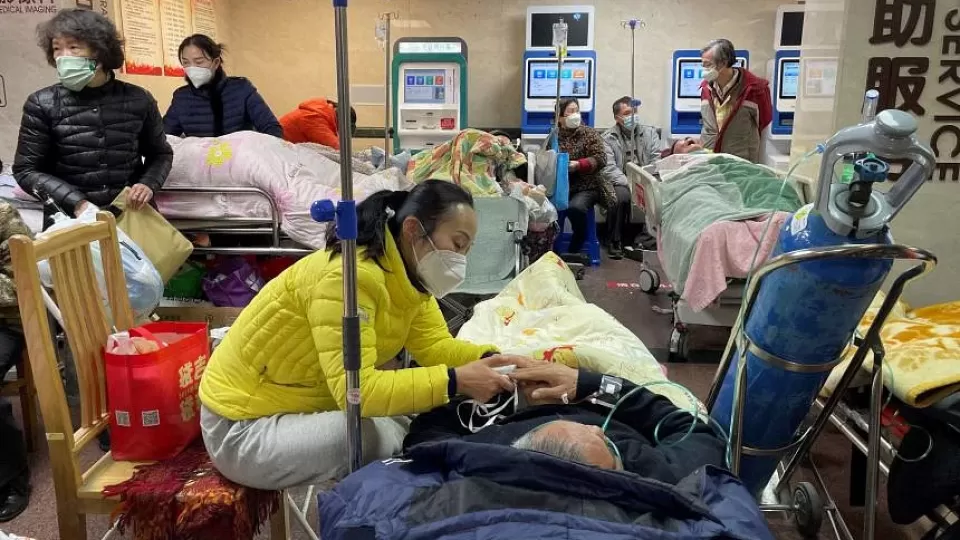March 6, 2023
BEIJING – China on Sunday lauded its own response to the coronavirus pandemic that had, for much of the past three years, involved flash lockdowns and travel restrictions.
But it also admitted its shortcomings, promising to better coordinate Covid-19 response policies with economic and social development.
Work reports from the government said China’s pandemic response, which up till last December was based on a strict zero-Covid policy, had drawn widespread support and was highly effective.
“(We) improved and adjusted response measures in view of virus variations and the evolving dynamics of epidemic prevention and control,” the government’s report said, calling its Covid-19 response “effective and well-coordinated”.
Extra funds were set aside for virus prevention and control in agencies dealing with travellers and goods from overseas; subsidies were offered for local vaccination programmes; and certain hard-hit industries such as the hospitality and retail industries had their taxes deferred.
In its 87-page report, the National Development and Reform Commission (NDRC) said the country’s Covid-19 response was “truly extraordinary” and a “miraculous achievement”.
“Practice shows that the (Communist Party of China) Central Committee’s major judgments on the development of the epidemic, its major decisions on response efforts, and its major adjustments to our response strategy have been completely correct.”
The country’s top economic planner’s report added: “We won the great battle to protect Shanghai… and took swift and decisive steps to handle local outbreaks.”
Still, better coordination of China’s pandemic response was pledged among NDRC’s goals for 2023.
It said more medical resources will be channelled from urban to rural areas, and existing healthcare capabilities upgraded while a virus early-warning system will be built.
Larger cities will also be encouraged to retrofit existing homestays and rural hotels to be able to accommodate emergency medical needs, and the NDRC said it will work to improve sanitation standards while also coordinating the stockpile and production of medical supplies better.
“We will move faster to improve medical, sanitation and environmental infrastructure, and lose no time in shoring up weaknesses and shortcomings, in order to build up our medical, sanitary, and environmental foundations for responding to major epidemics,” it said.
China’s tough zero-Covid stance exacted a toll on both the economy and people. The economy contracted in the second quarter of 2022, and frequent and protracted lockdowns saw people running out of basic essentials such as food and medicines.
Most businesses were forced to shut except those offering essential services, such as supermarkets and pharmacies, and delivery riders who criss-crossed the city bringing residents supplies to their barricaded homes. But even these businesses were disrupted when staff members tested positive for Covid-19.
Domestic consumption took a hit, with many people unwilling to spend, as they were unsure about how long the country’s disruptive policies would continue.
Many were also worried about travelling domestically for fear of crossing paths with a positive case and getting barred from returning home.
Things came to a head when protests broke out in late November in several cities, including Shanghai, Wuhan and the capital Beijing.
In an abrupt turn barely two weeks later, Beijing abandoned its zero-Covid policy – and a wave of infections ripped through the country, causing a run on cold and fever medications, an inundation of hospitals, and months-long wait times for cremations.

